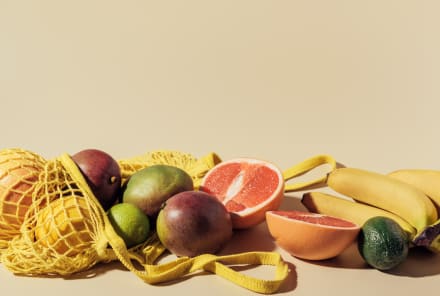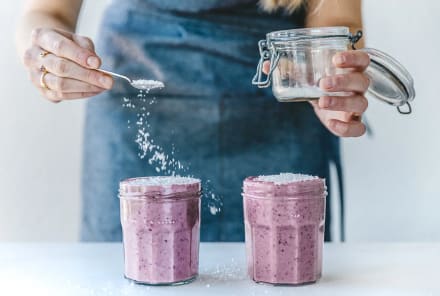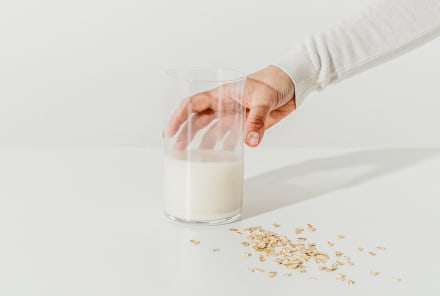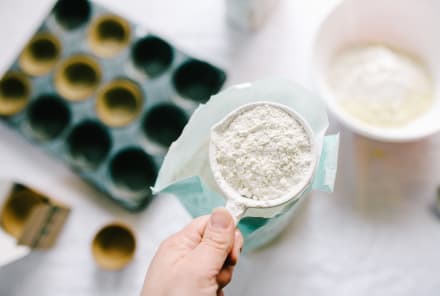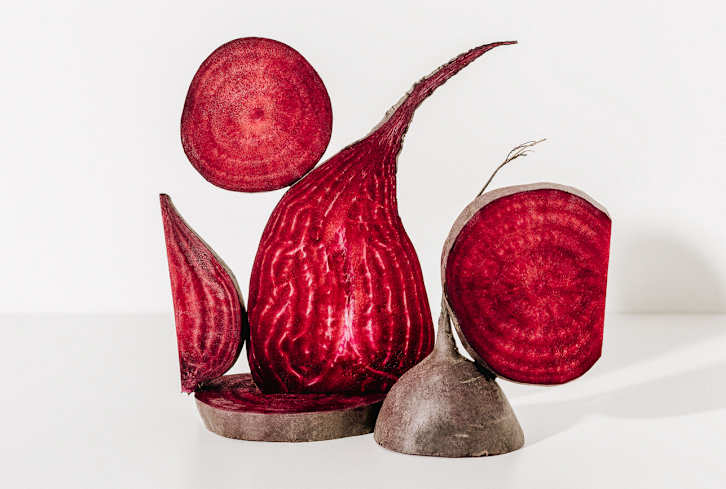Advertisement
This Surprising Mineral Can Counteract The Effects Of Sugar


If there’s a good versus evil in the nutrition world, it’s salt versus sugar. The two white crystals look similar on the outside but are totally different on the inside—and behave totally different once they’re inside your body.
Salt is composed of two essential minerals, making it an essential micronutrient, whereas sugar is a nonessential macronutrient. And while sugar and salt make up two of the five human tastes (salty, sweet, sour, bitter, and umami), they function in the body in radically different ways.
When you consume refined sugar, your sweet taste receptors signal the brain’s reward system in a way that is much more potent than consuming a piece of fruit—your brain lights up like a pinball machine due to the intense release of dopamine. Unfortunately, those sweet taste receptors don’t signal you to stop eating when you’ve had too much sugar. In fact, the more sugar you eat, the more you crave, creating a vicious cycle of sugar dependence. On the other hand, if you eat loads of the other white crystal (salt), your salt taste receptors "flip1" and provide you with an aversion signal. In other words, if you consume too much salt in a meal, your body has a built-in safety mechanism causing you to crave less salt later in the day. Your body is extremely smart when it comes to regulating the intake of essential minerals, especially one as important as salt.
But how much salt should you eat each day? While every guideline and health authority would have you eating no more than one teaspoonful of salt per day, evidence from studies published in the medical literature suggests that most people should eat around 1½ to 2 teaspoons of salt per day. More salt may be needed if you are an avid exerciser and lose salt in sweat or out the urine via coffee intake.
As for sugar, it's best to consume no more than 20 grams (about 5 teaspoonfuls) of added sugars per day for the average adult to avoid negative health consequences.
Over the last few hundred years, the average intake of salt has actually declined. In fact, we now eat one-tenth the amount of salt that we used to consume back in the 1600s in Europe. In those days, we didn't have refrigerators to preserve our food, so everything was packed with salt. During this time of gorging on salt, there wasn’t an obesity or diabetes or hypertension crisis. People back then ate real whole foods and consumed a lot of salt, but they also consumed very little sugar.
During the past few hundred years when our intake of salt was dropping, the intake of sugar was exploding. Indeed, just a few hundred years ago, people consumed just a few pounds of sugar2 per year. Now that sugar is more available, its average intake has skyrocketed up to 152 pounds2 of sugar consumed per person per year. That’s a 30-fold increase!
Because people are consuming less salt in general or opting for a healthier and more interesting version, (flakey sea salt or Himalayan pink salt), we are now seeing more iodine deficiency. Iodine is important for thyroid regulation, so we recommend mixing iodized sea salt into your diet.
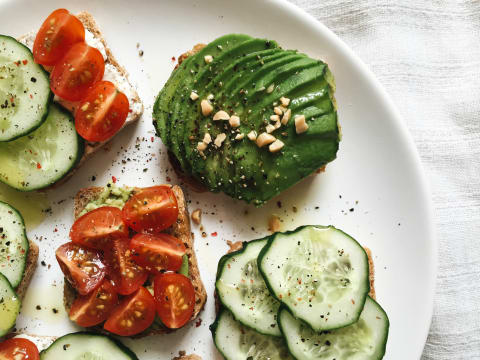
Sugar wreaks havoc on your body—while salt helps fix it.
We really do have a tough time shaking our sweet tooth. Speaking of teeth, it has been known for thousands of years that salt prevents the decay of teeth3, whereas refined sugar causes dental cavities.
But the yin and yang of salt and sugar doesn’t stop at the mouth—it also extends to the brain.
As a colleague and I alluded to in the New York Times, sugar, not salt, is the true addictive white crystal. Indeed, sugar meets the definition of an addictive substance4 in animals, hitting all the checkboxes for being a substance of abuse including reward, tolerance, bingeing, and withdrawal. And as I show in my book, The Salt Fix, salt may actually be an antidote to sugar addiction.
Sodium depletion sensitizes the reward system5, making sugar more appealing; increasing the intake of salt may actually reduce sugar cravings and may even reduce the reward that you get from consuming sugar. Low-salt diets may even increase the addictive6 properties of drugs of abuse.
Unlike sugar, salt also appears beneficial to our brain. Indeed, sodium helps to move vitamin C7 into the brain, whereas glucose competes with its uptake7. Sugar also depletes the body of B vitamins, including thiamine8, which is extremely important for brain health9. This suggests that consuming salt is indeed good, and even necessary, for brain health whereas overconsuming sugar wreaks havoc.
It has been known for thousands of years that salt prevents the decay of teeth, whereas refined sugar causes dental cavities.
Salt also helps with digestion. Indeed, salt is made up of two essential minerals: sodium and chloride. Chloride is needed in the production of stomach acid10, helping with digestion of food and absorbing nutrients, whereas consuming sugar can lead to digestive issues11.
When it comes to your kidneys, it's easy to think that salt is the harmful white crystal. This is because we are constantly being told that eating too much salt is stressful on our kidney-shaped organs. However, this does not appear to be true. Indeed, the evidence in the literature shows that overconsuming sugar drives chronic kidney disease, whereas not consuming enough salt can actually cause kidney issues. In fact, one study concluded kidney function actually deteriorates12 with a low-salt diet due to impaired blood flow to the kidneys.
Adding insult to injury, the substance that we have blamed for decades as a cause of kidney stones (i.e., salt) may actually be a solution. Indeed, studies show that eating more salt can reduce the risk of kidney stones13, whereas eating more sugar14 increases the risk.
The battle of good and evil between these two white crystals rages on in our bodies. Indeed, the assault on our bodies from overconsuming sugar is wreaking metabolic havoc. When you overeat sugar, this causes an increase in insulin (a fat-storing hormone), insulin resistance, and type 2 diabetes15, whereas eating more salt actually can improve type 2 diabetes16.
Diets too high in salt can increase water retention and are often associated with cortisol dysregulation, hypertension and adrenal fatigue. While those negative side effects are important to keep in mind, the benefits of eating salt have been undervalued for decades.
When it comes to your bone health, yet again salt is the white crystal in shining armor. When we cut our salt intake, to the level that every dietary guideline tells us to, this can cause calcium and magnesium depletion17 from the body. When our intake of salt goes down, the body seems to pull sodium as well as calcium and magnesium from the bone, likely increasing the risk of osteoporosis. Low salt diets also increase the loss of magnesium in sweat18—the body pushing out more magnesium instead of sodium in order to conserve low sodium reserves. All of this can take its toll on the health of our bones. In fact, consuming more salt19 may protect your bones, whereas consuming a diet high in sugar is clearly harmful20. The next time you decide to reach for the sugar bowl, think twice, grabbing the salt shaker instead just may end up saving your life.
Plus, a lack of salt might be crippling your workout routine. Here's why.
20 Sources
- https://www.ncbi.nlm.nih.gov/pubmed/?term=heaney+making+sense
- https://www.ncbi.nlm.nih.gov/pubmed/?term=dinicolantonio+open+heart+white+crystal
- https://www.ncbi.nlm.nih.gov/pubmed/?term=Desanto.+A+contribution+to+the+history+of+common+salt
- https://www.ncbi.nlm.nih.gov/pubmed/?term=dinicolantonio+sugar+addiction
- https://www.ncbi.nlm.nih.gov/pubmed/?term=Clark+JJ,+Bernstein+IL.+A+role+for+D2+but+not+D1+dopamine+receptors+in+the+crosssensitization+between+amphetamine+and+salt+appetite.+Pharmacol+Biochem+ low-salt diets may even increase the addictive properties of drugs of abuse https://www.ncbi.nlm.nih.gov/pubmed/?term=Clark+JJ,+Bernstein+IL.+Reciprocal+cross-sensitization+between+amphetamine+and+
- https://www.ncbi.nlm.nih.gov/pubmed/?term=Clark+JJ,+Bernstein+IL.+Reciprocal+cross-sensitization+between+amphetamine+and+
- https://www.ncbi.nlm.nih.gov/pmc/articles/PMC2649700/
- https://www.ncbi.nlm.nih.gov/pmc/articles/PMC4975866/
- https://www.ncbi.nlm.nih.gov/pmc/articles/PMC3609887/
- https://www.ncbi.nlm.nih.gov/pubmed/5784164
- https://www.ncbi.nlm.nih.gov/pmc/articles/PMC4729202/
- https://www.ncbi.nlm.nih.gov/pubmed/?term=J+Cardiovasc+Pharmacol.+1981+Jul-Aug%3B3(4)%3A781-90.The+antihypertensive+mechanism+of+sodium+restriction
- https://www.ncbi.nlm.nih.gov/pubmed/?term=Changes+in+urinary+stone+risk+factors+in+hypocitraturic+calcium+oxalate+stone+formers+treated+with+dietary+sodium+supplementation
- https://www.ncbi.nlm.nih.gov/pubmed/?term=Possible+role+of+carbohydrate-induced+calciuria+in+calcium+oxalate+kidney-stone+formation
- https://www.ncbi.nlm.nih.gov/pubmed/25639270
- https://www.ncbi.nlm.nih.gov/pubmed/11465650
- https://www.ncbi.nlm.nih.gov/pubmed/12953799
- https://www.ncbi.nlm.nih.gov/pubmed/?term=Positive+correlation+between+dietary+intake+of+sodium+and+balances+of+calcium+and+magnesium+in+young+Japanese+adults--low+sodium+intake+is+a+risk+factor+for+loss+of+calcium+and+magnesium--
- https://www.ncbi.nlm.nih.gov/pubmed/?term=Sodium+Intake+and+Osteoporosis.+Findings+From+the+Women%27s+Health+Initiative+%EE%A4%81
- https://www.ncbi.nlm.nih.gov/pubmed/?term=Effect+of+consuming+different+caloric+sweeteners+on+bone+health+and+possible+mechanisms
Watch Next
Enjoy some of our favorite clips from classes
Enjoy some of our favorite clips from classes
What Is Meditation?
Mindfulness/Spirituality | Light Watkins
Box Breathing
Mindfulness/Spirituality | Gwen Dittmar
What Breathwork Can Address
Mindfulness/Spirituality | Gwen Dittmar
The 8 Limbs of Yoga - What is Asana?
Yoga | Caley Alyssa
Two Standing Postures to Open Up Tight Hips
Yoga | Caley Alyssa
How Plants Can Optimize Athletic Performance
Nutrition | Rich Roll
What to Eat Before a Workout
Nutrition | Rich Roll
How Ayurveda Helps Us Navigate Modern Life
Nutrition | Sahara Rose
Messages About Love & Relationships
Love & Relationships | Esther Perel
Love Languages
Love & Relationships | Esther Perel

